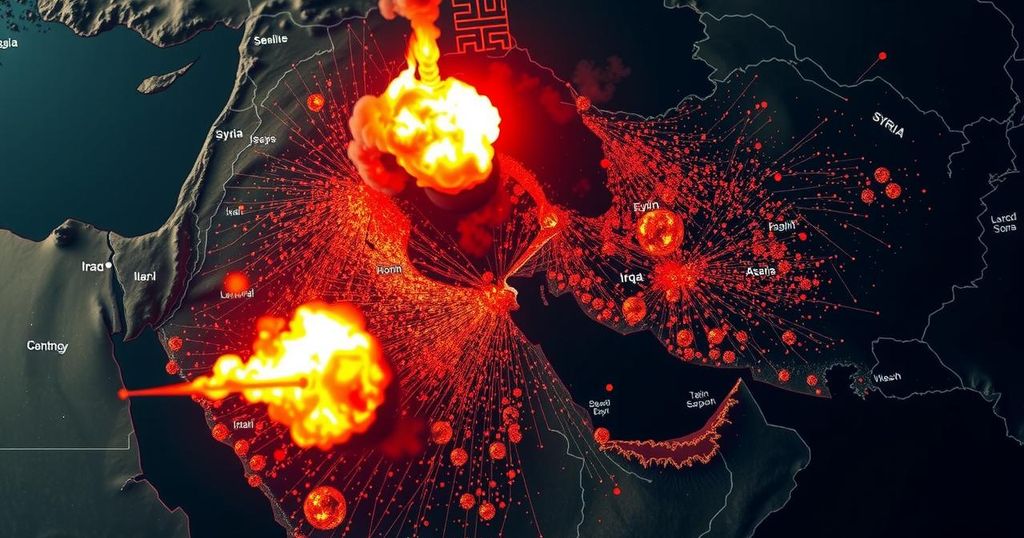Israel has launched military strikes against Iranian targets near Tehran, with simultaneous explosions reported in Syria and Iraq. This action is framed as a response to ongoing Iranian aggression. The situation risks a broader regional conflict, spurring calls for the U.S. to avoid deeper involvement and seek the establishment of ceasefires.
On October 14, 2023, Israel escalated its military actions by conducting strikes against Iranian military targets in and around Tehran, while additional explosions attributed to Israeli forces were reported in both Syria and Iraq. The IDF stated that these strikes were a response to ongoing attacks from Iranian forces against Israel, which they claim have been persistent since the heightened conflict that began on October 7, 2023. According to Rear Adm. Daniel Hagari of the Israel Defense Forces, Israel insists on its sovereign right to respond to threats, emphasizing that their operations are precise and focused on military objectives. Reports indicate that explosions occurred near critical sites in Tehran, including the Imam Khomeini International Airport and areas adjoining the headquarters of the Islamic Revolutionary Guards Corps (IRGC). In a notable counteraction, Iran allegedly executed missile strikes targeting Israeli positions in response to earlier Israeli assassinations of significant Iranian and Hezbollah figures. The situation has raised alarms, with peace organizations expressing concerns that the ongoing military actions could spiral into broader regional conflict, contingent upon the potential involvement of U.S. forces. Massachusetts Peace Action’s executive director, Brian Garvey, warned against U.S. intervention, cautioning that it could escalate tensions amid Israel’s ongoing warfare across multiple fronts, including Gaza, Lebanon, and now Iran, Syria, and Iraq. Garvey’s remarks encapsulate the apprehension surrounding this escalation, and he calls for a cessation of military aid to Israel, advocating for immediate peace talks.
The recent surge of military engagement involving Israel is underscored by its ongoing conflicts in Gaza and Lebanon which have been ongoing for a year, resulting in significant casualties and mass displacement. The escalation against Iran, Syria, and Iraq indicates a multifaceted military campaign impacting several regional nations simultaneously. The situation is shaped by long-standing geopolitical tensions, with Iran and its allied militias frequently being in opposition to Israeli actions. The Biden administration’s informal acknowledgement of the attacks reflects the complex dynamics at play in international diplomacy concerning Middle Eastern affairs, particularly as peace movements advocate for a reduction in U.S. involvement and support.
In conclusion, the recent Israeli military strikes on Iranian targets signify a concerning escalation in the already volatile Middle Eastern landscape, with implications extending to Iraq and Syria. The responses from regional experts highlight the precarious balance of power and the risk of broader conflict. The mounting calls from peace organizations in the United States urge the government to reconsider military assistance to Israel, emphasizing a need for diplomatic dialogues to prevent further escalation.
Original Source: www.commondreams.org






